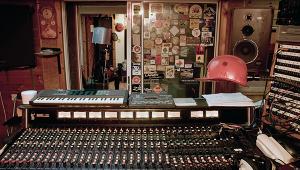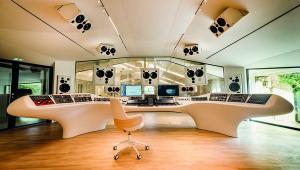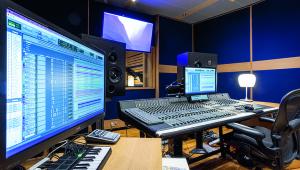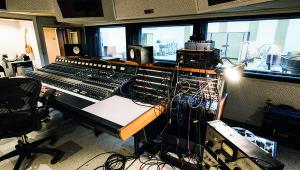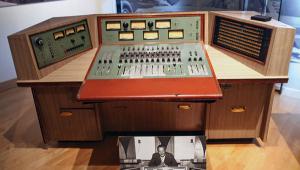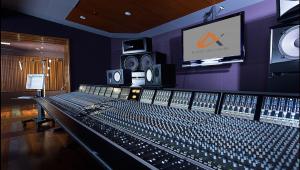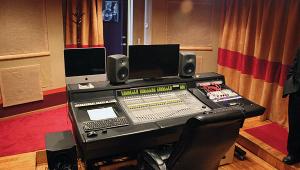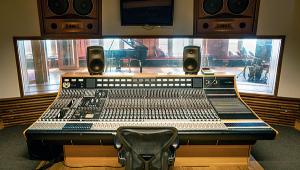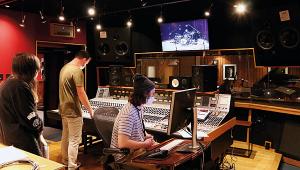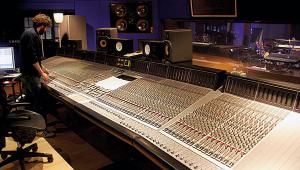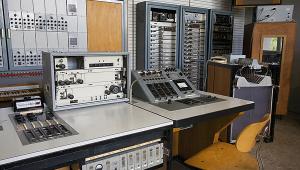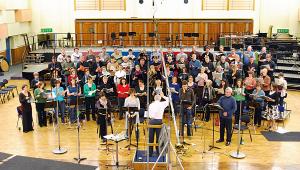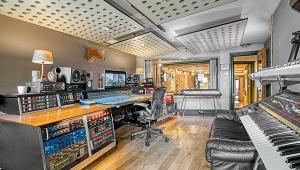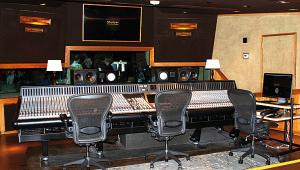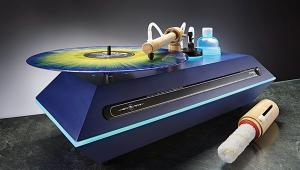Rolling Stones Mobile
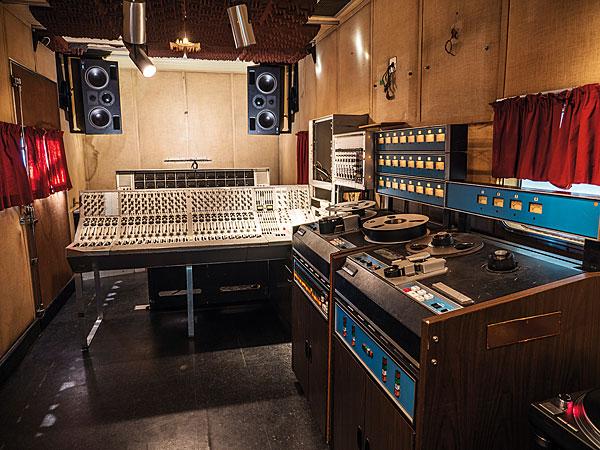
We all came out to Montreux/On the Lake Geneva shoreline/To make records with a mobile/We didn't have much time/ We ended up at the Grand Hotel/It was empty cold and bare/But with the Rolling truck Stones thing just outside/Making our music there...'
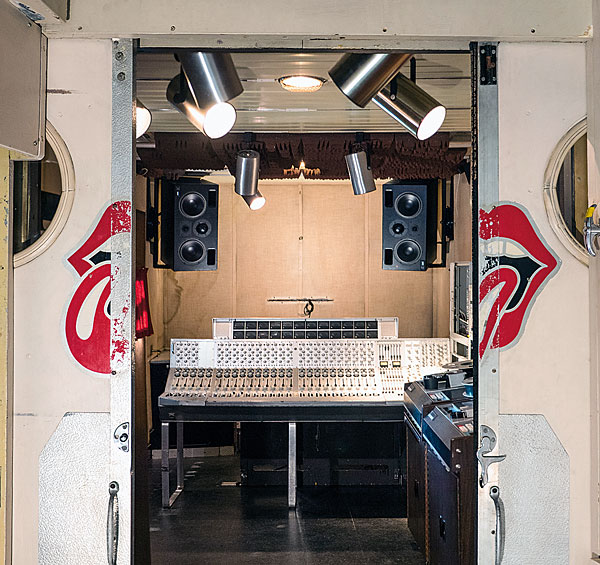
Not too many studios can boast they've been name-checked in a song, let alone a stone-cold classic. But then, as you've doubtless guessed by the name, the Rolling Stones Mobile is no ordinary studio. Effectively a van set up for recording, in Dec '71 it was parked up next to the Montreaux Casino which, the next day, was to be the venue where Deep Purple would begin recording their sixth LP, Machine Head.
'We decided to record the album onstage, using the natural acoustics of the surroundings', the band's bassist Roger Glover recalls. 'In other words, make a studio album under live conditions, almost like a live album without the audience.'
Rattan Luck
Right now, though, Frank Zappa and his Mothers Of Invention are playing a show in the casino's theatre – the final gig before the casino complex closes down for its annual winter renovations and the Purps pile in to record there. The Mothers' Don Preston is about to start a synthesiser solo on 'King Kong' when some fool in the audience fires a flare gun into the rattan-covered ceiling and instantaneously the venue is ablaze. The audience flee to safety but the fire destroys the entire casino complex, along with all The Mothers' equipment. The Mobile is quickly shifted and the members of Deep Purple gaze out of their nearby hotel windows at the smoke drifting across Lake Geneva.
Left with the Mobile but no place to record, the band rent the Grand Hotel de Territett where they proceed to lay down most of the tracks on the Mobile for what will become their most commercially successful album and their most famous song – the whole escapade encapsulated in the mighty metal anthem, 'Smoke On The Water'. Y'know, the one that starts: 'Dah dah dah dah dah dah dah…'.
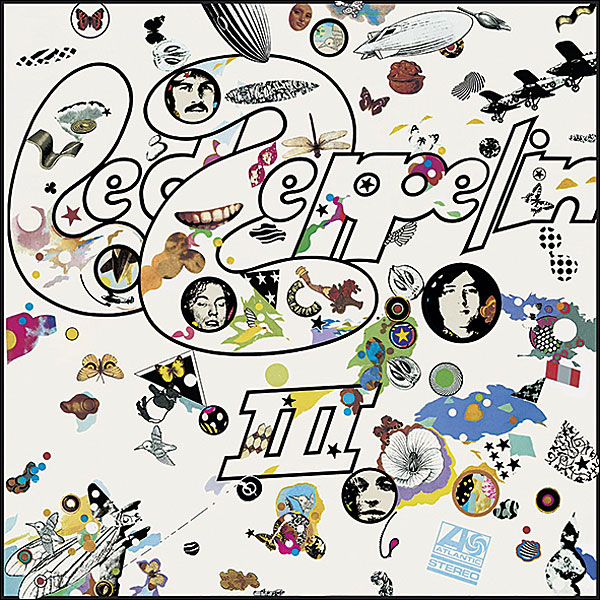
One For The Road
The original concept for The Rolling Stones' Mobile Studio had first come about three years earlier, in 1968, when Mick Jagger and co decided they needed a new environment in which to record. Tired of the traditional limitations of a regular studio – nine-to-five, old geezers in lab coats worrying about the needle straying into the red, not to mention the expense – the Stones decided to use Jagger's posh new Hampshire country house, Stargroves, as a base to try recording new music.
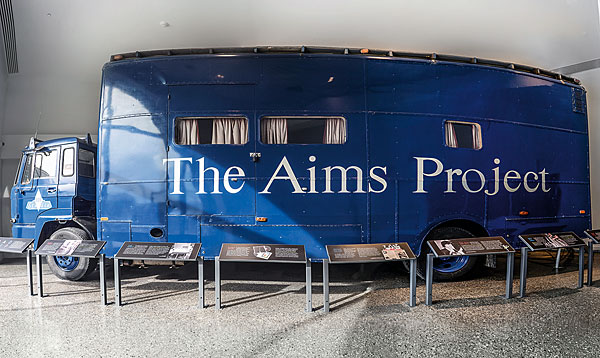
All the equipment was lugged to the house, and then sometime-Stone, boogie woogie pianist and road manager Ian Stewart came up with the idea of putting a control room into a van. This way the band could go wherever they wanted to record whenever they wanted.
Stewart consulted with a few mates who were top engineers and producers, including Stones sidekick Glyn Johns [HFN Nov '18], and then Helios Electronics was entrusted with setting it up and kitting it out.
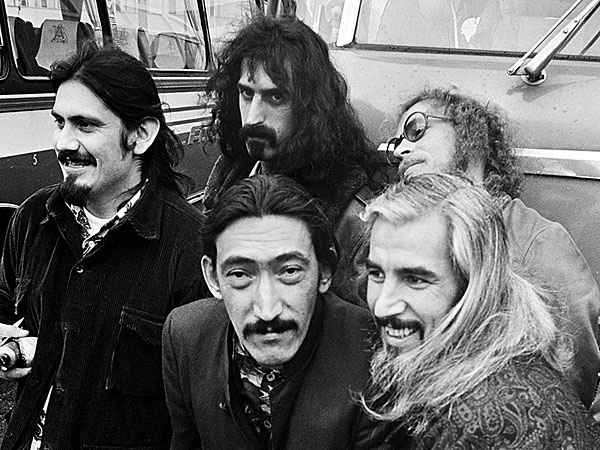
In A Pickle
The Stones recorded much of 1971's Sticky Fingers at Stargroves using the Mobile and when they found themselves in a pickle with the taxman, they scarpered to France taking the Mobile with them. While newly-wed Jagger settled in Paris with his wife Bianca, Keith Richards rented Nellcote, a ramshackle villa at Villefranche-sur-Mer near Nice, and had the basement converted into a makeshift studio connected up to the Mobile outside. The ensuing sessions made up the meat of the legendary double album Exile On Main Street. The Mobile then made its way back to the UK while the Stones skipped off to the States, scared off by drug-sniffing gendarmerie.
The Mobile had originally been intended for the band's use only, but back home it quickly proved a lucrative attraction to others seeking to capture live recordings or similar freedom from trad studios. 'It was the only independent mobile recording unit around', Keith Richards wrote in his autobiography, Life. 'We didn't realise when we put it together how rare it was – soon we were renting it out to the BBC and ITV because they only had one apiece. It was another one of those beautiful, graceful, fortuitous things that happened to the Stones.'
